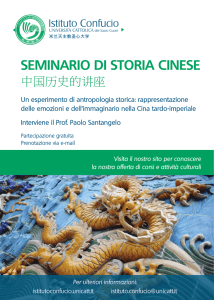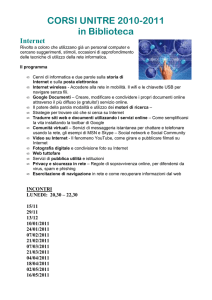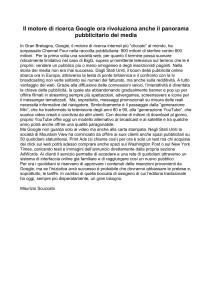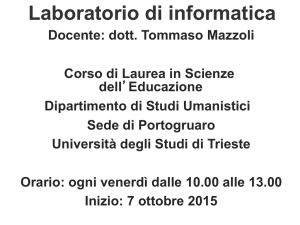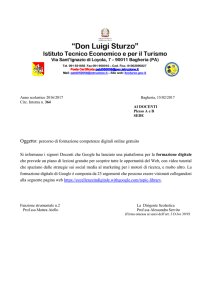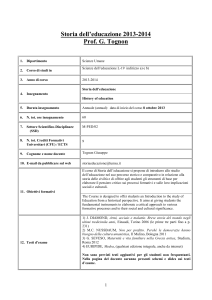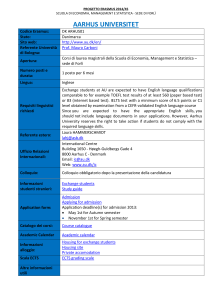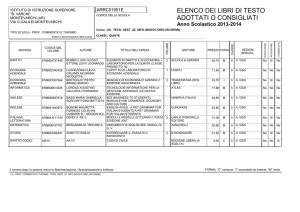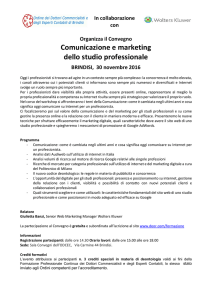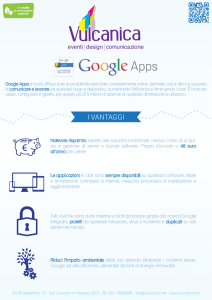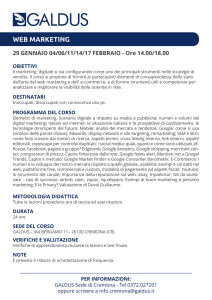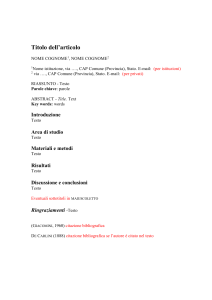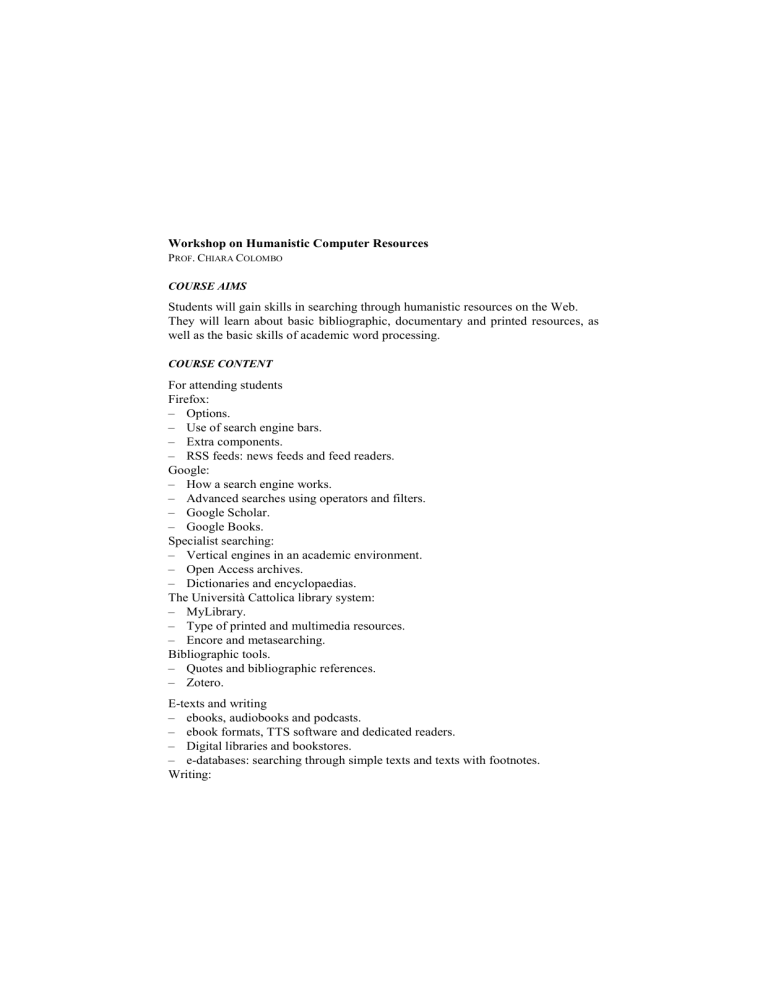
Workshop on Humanistic Computer Resources
PROF. CHIARA COLOMBO
COURSE AIMS
Students will gain skills in searching through humanistic resources on the Web.
They will learn about basic bibliographic, documentary and printed resources, as
well as the basic skills of academic word processing.
COURSE CONTENT
For attending students
Firefox:
– Options.
– Use of search engine bars.
– Extra components.
– RSS feeds: news feeds and feed readers.
Google:
– How a search engine works.
– Advanced searches using operators and filters.
– Google Scholar.
– Google Books.
Specialist searching:
– Vertical engines in an academic environment.
– Open Access archives.
– Dictionaries and encyclopaedias.
The Università Cattolica library system:
– MyLibrary.
– Type of printed and multimedia resources.
– Encore and metasearching.
Bibliographic tools.
– Quotes and bibliographic references.
– Zotero.
E-texts and writing
– ebooks, audiobooks and podcasts.
– ebook formats, TTS software and dedicated readers.
– Digital libraries and bookstores.
– e-databases: searching through simple texts and texts with footnotes.
Writing:
– Rudiments of word processing for academic and scientific papers
For non-attending students
A. CAPACCIONI, Ricerche bibliografiche: banche dati e biblioteche in rete, Apogeo, Milan,
2011 (excluding chapter 5).
M. GUERRINI, La biblioteca spiegata agli studenti universitari, Bibliografica, Milan, 2012.
F. VENUDA, La citazione bibliografica nei percorsi di ricerca. Dalla galassia Gutenberg alla
rivoluzione digitale. Unicopli, Milan, 2012.
Skills
Learning the use and functions of the following cataloguing tools and full-text
databases:
1. SBN <http://opac.sbn.it/opacsbn/opaclib>
2. MetaOPAC Azalai <http://www.aib.it/aib/opac/mai2.htm3>
3. ACNP <http://acnp.unibo.it/cgi-ser/start/it/cnr/fp.html>
4. Millennium UC
a. Classic catalogue and Encore <http://sbda-opac.unicatt.it/>
b. Metasearching <http://sbda-opac.unicatt.it/screens/metaricerca_ita.html>
c. Electronic
resources
<http://sbdaopac.unicatt.it/screens/risorse_elettroniche_ita.html>
d. Scopus <http://tinyurl.com/onddbyt> (access from the Università Cattolica network
as a registered user)
5. OCLC WorldCat <http://www.worldcat.org/>
6. Google Scholar <http://scholar.google.it/>
7. Google Books Survey <http://books.google.it/>
8. DOAJ (Directory of Open Access Journals) <http://doaj.org/>
9. DART-Europe e-Theses Portal <http://www.dart-europe.eu/basic-search.php>
10. OAIster (Open Archives Initiative) <http://oaister.worldcat.org/>
11. OATD (Open Access Thesis and Dissertations) <http://oatd.org/>
12. BASE (Bielefeld Academic Search Engine) < http://www.base-search.net/>
One of the following texts:
A. CAPACCIONI, Ricerche bibliografiche: banche dati e biblioteche in rete, Apogeo, Milano, 2011
(excluding chapter 5).
C. COLOMBO, Il web per le scienze umanistiche: strumenti e risorse, Universitas Studiorum,
Mantova, 2012.
M. GUERRINI, La biblioteca spiegata agli studenti universitari, Bibliografica, Milano, 2012.
F. VENUDA, La citazione bibliografica nei percorsi di ricerca. Dalla galassia Gutenberg alla
rivoluzione digitale, Unicopli, Milano, 2012.
READING LIST
Attending students
C. COLOMBO, Il web per le scienze umanistiche: strumenti e risorse, Universitas Studiorum,
Mantua, 2012.
Non-attending students
A. CAPACCIONI, Ricerche bibliografiche: banche dati e biblioteche in rete, Apogeo, Milan,
2011 (excluding chapter 5).
M. GUERRINI, La biblioteca spiegata agli studenti universitari, Bibliografica, Milan, 2012.
TEACHING METHOD
All lectures are held in the computer laboratory and include practical exercises on the
computer. Students will need a USB flash drive. Resources and information are available
online and are used for the exercises during the course and final project.
ASSESSMENT METHOD
– Continuous assessment.
– Course exercises under the guidance of the lecturer. For the final grade, students are
requested to present, on lecturer’s webpage, some exercises such as a “blog post” or a word
processing paper.
Colloquio
During the oral examination, non-attending students have to present a bibliographic
research project into catalogue and/or full-text resources on a topic of personal interest,
carried out using some of the databases listed (at least 1 OPAC, 1 Open Access database and
1 full-text database). The project must be presented on a PC, with or without the aid of a
PPT presentation. Students are expected to have acquired theoretical knowledge of the two
cataloguing tools by studying the two set textbooks (two textbooks to choose among the list
suggested).
NOTES
Further information can be found on the lecturer's webpage at
http://docenti.unicatt.it/web/searchByName.do?language=ENG or on the Faculty notice
board.

